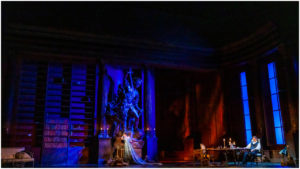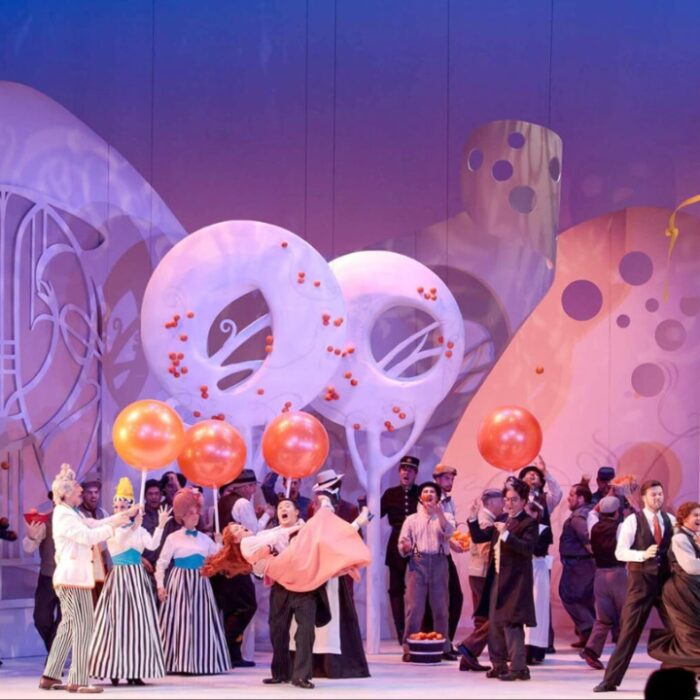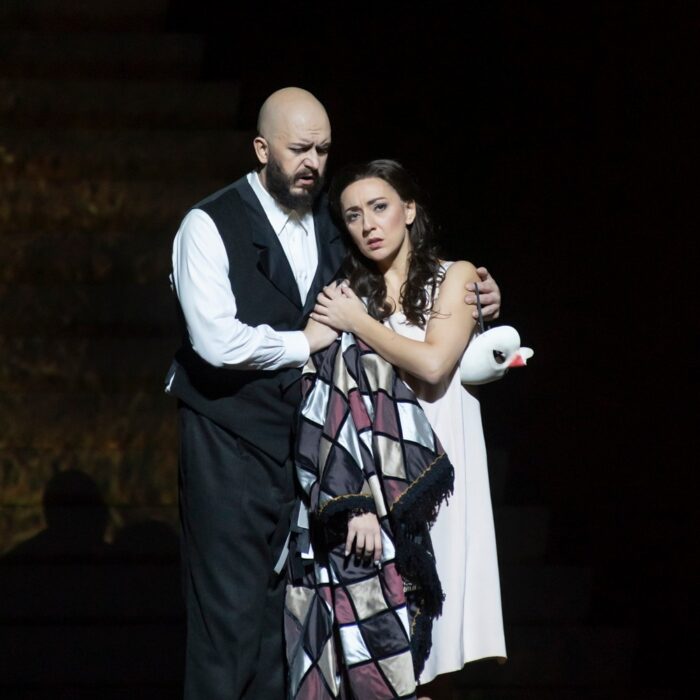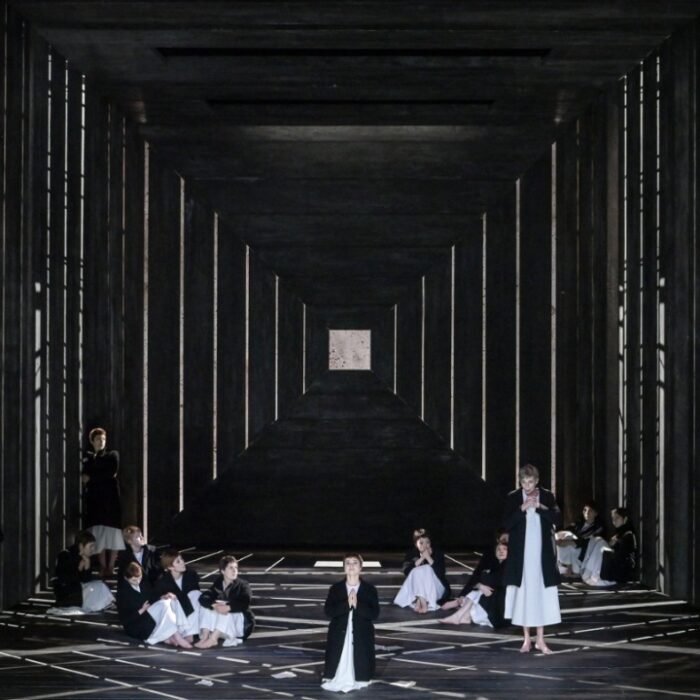
Royal Opera House 2021-22 Review: Tosca
Excellent Debuts Mark Jonathan Kent’s Production of Puccini’s Political Thriller
By Benjamin Poore©
Jonathan Kent’s production of “Tosca” for Covent Garden is getting its tenth revival, under the baton of Oksana Lyniv. It’s a regular fixture and a top-seller – though this particular run has already faced down two dramas of its own.
First, the cancellation of the original opening night owing to a lack of stagehands and technical staff (COVID has gutted the sector of vital staff who couldn’t make a living while theatres were shuttered).
Second, star tenor Bryan Hymel’s head cold, which forced him to cut his losses after a choppy and effortful Act one – most uncharacteristic for a tenor renowned for his lyric quality and staying power in big meaty French repertoire – to be replaced by Freddie de Tommaso from the other cast mid-show. “Ecco un artista!” Tosca says at the opera’s climax, as Cavaradossi (actually) slumps dead, and there’s no doubting the professionalism and sangfroid Tommaso displayed, both vocally and dramatically, at such short notice.
Towering Historical Fiction
Kent’s glowering production is firmly in historical fiction territory – sparkling frocks, big bold sets, and naturalism rule the roost. Indeed, Paul Brown’s towering designs are so verismo that they are apparently to scale with the real locations in which the opera is set (Sant’Andrea della Valle, Palazzo Farnese, etc.)
It’s opulence and atmosphere all the way down, whether in Scarpia’s dictatorial digs or the incense-filled climax of Act one behind the chapel’s gilt-edged gate and icon, a keen reflection of this way this production mostly works as a star vehicle. An enormous statue of Hercules dominates the Act two set – it’s big glossy opera for even bigger voices, here revived by Amy Lane. It’s most powerful moment, perhaps, is its most elegant and understated – a soldier washes and dresses on the ramparts at the opening of Act three as a smooth-voiced Alfie Davis sings the Shepherd’s song offstage; a strange moment of purification before the violent denouement.
In the context of all this spectacle Alexey Markov’s Scarpia feels oddly understated. It’s a sinuous voice, flexible and poised, rather like Markov’s presentation of the character as a wily schemer, professional and efficient. He was a little overpowered by the orchestra in the great Act one Te Deum finale, and there wasn’t a huge sense of religious fervour meeting erotic fixation.
In Act two he cut a compelling dash and we saw (and heard) much more fire and ruthlessness. It’s a production whose bold, Romantic look seems to actually demand a scenery-chewing Bond-villain presence and Markov’s cooler approach is certainly a striking approach to the character, but feels a bit undercooked with all this high drama.
The Big Stories
Elena Stikhina’s Tosca – her debut in this house – is a rather composed one, and there is little sense of threat or anguish in the awkwardly blocked Act two exchange with Scarpia, which takes place with both singers much too far apart across the cavernous stage and set. It feels oddly distant for a battle of wits and wills charged with lust, rage, and desperation. Nor did she seem especially agitated as she resolves to betray Angelotti’s hideout to save Cavaradossi (and, indeed, kill Scarpia). Perhaps Tosca’s supreme composure is born from years treading the boards, but it feels an oddly flat character moment, with little conflict. Gestures feel rather stock – there is much diva-ish laying of hand on chest and wistful looking – and the part wants for imaginative direction.
Vocally, though, she was as starry as the backlit ramparts of the Castel Sant’Angelo – and certainly captured Tosca’s temper and vanity. “Vissi d’arte” was a true showstopper, sung with glorious inwardness, Stikhina leaning against the foot of the enormous sculpture upstage, before blooming with desperation and sorrow as the aria unfolded. Her voice is remarkably even across all registers, and delivers a silky smooth legato even with plenty of volume and in the upper reaches of the stave.
Freddie de Tommaso is the first British singer (so to speak – he is half-Italian) to sing the role of Cavaradossi on this stage for six decades. And what a terrific performance it was too – liquid and glowing, with an internal tensile strength that let him soar over the orchestra. His “Vittoria” cries had swagger and thrust, carried through into the thrilling passages that followed as he defiantly celebrates Napoleon’s victory at Marengo. Most of the musical choices in “E lucevan le stelle” and the ensuing duet were fairly safe, and played a straight bat vocally throughout, for understandable reasons – but there’s no doubt he will take more risks and crank up the excitement (especially in Act two) as he continues the run in the other cast. Incredibly he is 28-years-old – one to watch.
Hubert Francis’ Spoletta was an oily henchman, as clipped and professional as Markov, and sneeringly dispassionate after Tosca’s big leap – think of all the paperwork, I suppose. Oksana Lyniv offered a pacy, trim account of the score, drawing excellent and consistently accurate playing from the orchestra, keeping the fiery climaxes on a tight leash so as to focus their energies. The orchestra’s horns gave a thrillingly bravura blast of energy at the top of Act three; the previous Act closed with a moaning, feral gloom in Puccini’s muted strings. It’s bold, brash stuff, and makes for a terrific night out – but one wonders whether the ROH should think about refreshing this mainstay of the repertoire with something newer and lighter.


